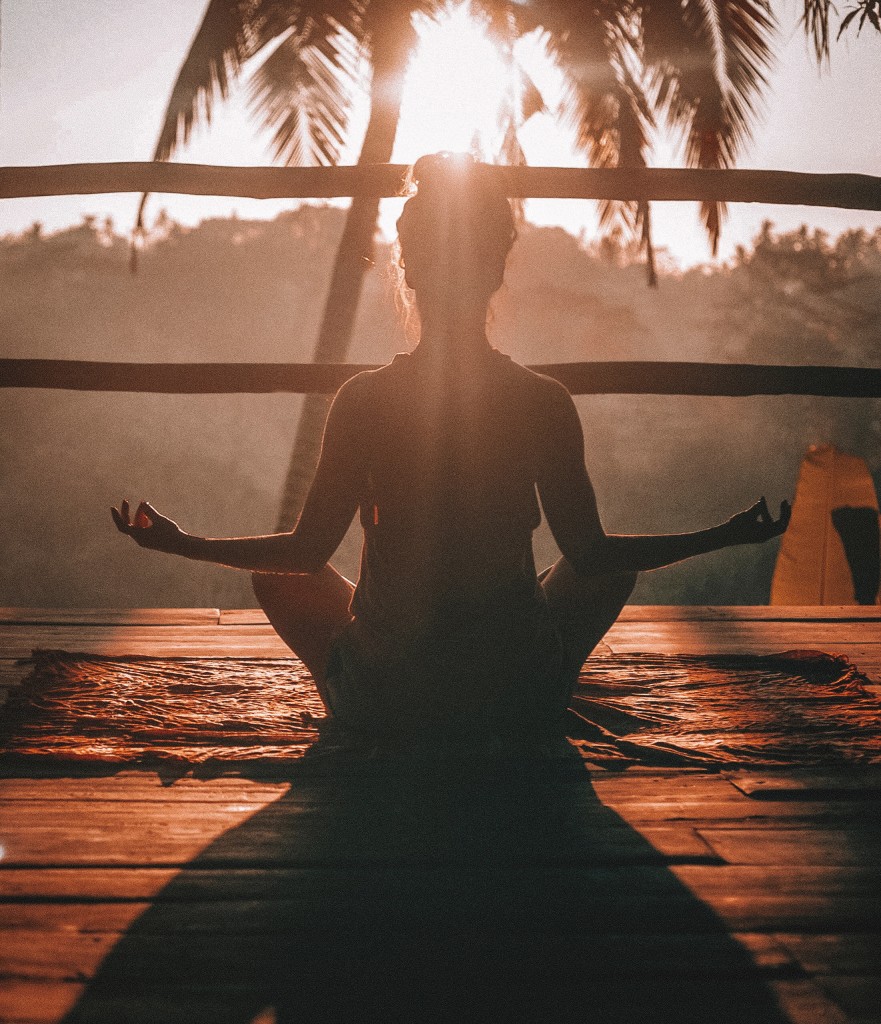One of the true markers of health is resilience, the ability to bounce back after any major or minor stressor. The regular practice of self-care to “fill your well” helps to increase your resilience and boost your overall health long term. Below are fundamentals of self-care to help you focus attention and create healthy rituals in specific dimensions of your wellness. -XO Raw Girl
- Proper Nutrition: Eating properly is essential to good health and spending the time to really assess what your nutritional requirements are is key. All of us are different, and it’s important to remove any foods that cause inflammation, allergens, or even mild food sensitivities. You can also spend time assessing the appropriate levels of protein, healthy fats, and carbohydrates that makes you feel at your best, and place emphasis on eating whole unprocessed foods.
- Water is needed by your body to function properly and to encourage proper elimination. To determine the amount of water that is adequate for you, divide your body weight in half and drink that many fluid ounces of water. For a woman weighing 140 pounds, 70 fluid ounces of water will be ideal to keep her hydrated and the metabolic processes in her body functioning optimally.There is a thing as too much water, so you can generally try not to exceed 125 fluid ounces.
- Sleep is the pillar of health that must be the foundation for other aspects of wellness like diet and exercise. Sleep deprivation increases our insulin resistance, influences the hormones that affect our cravings, decreases our memory recall and retention, and can decrease our alertness and motor skills while driving or at work. The sleep requirement for you is going to be unique to your body, but a good generally rule of thumb is to aim for a minimum of 7-8 hours.
- Mindfulness when practiced regularly can change the course of your day for the better. Taking in deep breaths brings oxygen to the whole cellular structure and relaxation skills can help you counteract the effects of prolonged or chronic stress, and also learn to respond rather than react to stressors in your environment. Some of the most accessible forms of mindfulness include: mediation, prayer, meditative walks, journaling, yoga, Tai Chi, Qi gong, and deep breathing.
- Time in Nature: Researchers are becoming more and more aware of the value of light on our psychological well-being. Sunshine can improve your attitude and boost your resilience. In tandem with this nature bathing has also been shown by scientific research to accelerate healing, reduce stress and anxiety, and improve mood. Even if you are in a city environment, it’s important to find ways to occasionally engage with nature whether it be exercising in a park or visiting your local Botanical Gardens.
- Exercise when practiced regularly helps sustain physical energy; reduce physical, mental, and emotional stress; and improves flexibility. In tandem with the aforementioned benefits it’s been proven that those who exercise are on average 10-20 years younger than their non-exercising counterparts. One study conducted at the University of Birmingham in the Institute of Inflammation and Ageing found that avid cyclists as old as 79 had healthy muscle and immune function equivalent to people 30 years younger than them who did not exercise. Researchers also reported the 79 year old subjects also looked as biologically as a group of people aged 20-36 who did not exercise.
- Balance: Keeping an appropriate balance of those things which are important in our lives can renew our sense of well-being. A positive attitude and outlook on life is key to maintaining balanced emotionally boosting our overall resistance. Other things you can do to promote balance is to stay vigilant of your time spent working. If you spend weeks pushing super hard at work with absolutely no rest, you will eventually burnout. Learning how to add some rest and play even in a busy season is very important for maintaining g balance.
- Pursuing Your Passion: One way we take care of our well-being is to pursue work and hobbies that make our hearts sing. It is essential to have engaging personal goals and objectives. The ability to accomplish our objectives provides us with a sense of accomplishment and reinforces an attitude of well-being.
- Sobriety: Avoiding mood altering substances especially in excess is key to emotional and physical resilience. Besides the fact that overeating processed foods, doing drugs, or drinking excessive alcohol can wreak havoc on your health, these activities also keep you from tuning into your true emotions. You cannot maintain a lasting sense of happiness if you are constantly using substances to avoid difficult emotions that may be a signal that you need to make some changes in your life.
- Self-pampering is finding time to engage in activities that reduce stress or just make you feel good. This aspect of self-care is best engaging in when you have covered the aforementioned fundamentals of getting adequate sleep, water, and proper nutrition. How you choose to pamper yourself will be unique for each person but can include activities like massages, facials, manicure and pedicures, colon hydrotherapy, acupuncture, eating gourmet meals, taking extended or mini vacations and more. Find what feels luxurious to you, and schedule in regular time to splurge on yourself, because you are worth it.
References:
Cartee GD, Hepple RT, Bamman MM, Zierath JR. Exercise Promotes Healthy Aging
of Skeletal Muscle. Cell Metab. 2016 Jun 14;23(6):1034-1047. doi:
10.1016/j.cmet.2016.05.007. Review. PubMed PMID: 27304505; PubMed Central PMCID:
PMC5045036.






